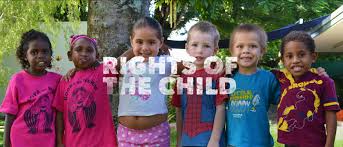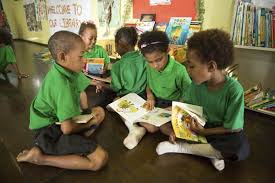Assessment 3- Ethical Dilemma Discussion & Essay
An Ethical Dilemma is a complicated problem that involves making a decision between two options.
The cahartericts of an ehtical delima is having a varity of options when experinced with a desction and possibly not be a resolution and can include Ethical Princples such as honesty, intergity and account ablity which plays a big role in early chlid hood settings and laws and plocies can cause some sort of conflicts between the parties.
EEP417 Rights Of The Child Assignment-Charles Sturt University Australia.

As for ERC stands which stands for Ethical Responese cycle that provides assistance by a frame work that helps assist them to take account of delivery and change.
(Newman and pollnitz’s Ethical rsponese cycle ( ERC) helps to framework as a point of reference. It’s also use full and allows all professonals to use and partically it has been establisted for early chlid hood educators. As early chlid hood educators must act in a honest and ethical mannar as they are dealing with young chlidren. It’s also useful as it helps to reslove problems in early chlidhood services and helps to assit with desction making that will
help reach ethical judgements and reslove situations in a ethical mannar and helps to protect the chlidren.
This essay will discuss about Ethical dellimas and its’s charatictices , and will expalin and identify about delima 5 which I have choosen and will also include information on ERC and legal aspects and documentations such as EYLF,NQS and UNCRC).
The Ethical dliemma which was choosen in my group was Dliemma 5: A 2.5 year old chlid named mayah who was enrolled in our service who gets extermally tired and agitated after lunch each day and her parents have mentioned that they don’t want her too nap as they find it difficult to get her to sleep at night. As both her parents work full time. An educator decides to let mayah sleep as she belives that the chlid really needs it. The parents visits at the time the chlid is sleeping and complains to the educator.
Educator in the centre are split between allowing mayah to rest but mayah’s parents prefer mayah not to sleep as it will disrube her parents to sleep at night as they work work full time. But allowing mayah to sleep longer will effect her parents relationship with her educators. By
compermisig with parents and educators they can reslove mayahs issues (Newman & Pollnitz, 2005)
In Mayah’s dilemma, we have to focus on a variety of ethical principles. As educators would have to consider exploring and investigating Newman & Pollnitz’s readings, Educators, her parents, and her parents can work together to resolve this issue.
As we look through the Ethical principles and Delima from Newman & Pollnitz, 2005 Educators and parents need to consider drawing their attention on trying to sort out the dilemma with respecting the child’s interest. The beneficence principle discusses on mayah’s best interest and her wellbeing. Newman & Pollnitz, 2005. Educators understand that mayah
feels not settled and frustrated as she needs to sleep more during nap time. Following on the principal educators will decide to allow mayah to sleep extra during nap time, being an important need for her. Although educators focus on doing good and avoiding harm as educators might feel it’s a better choice to allow mayah to sleep more during nap time and don’t think if she sleeps for too long it might affect her to sleep too long at night. As
educators are supporting the child allows her to sleep more but they also need to take into account the effects which may cause harm has to mayhas night-time sleeping routine, but then again, not letting mayah to sleep long enough will cause harm to her health and well- being Non- maleficence avoiding haram.
Focusing on the child’s Delima we can understand and pay our attention to the ethical principles of mayha, we can focus ( in virtue and intelligence ) self-importance( Newman & Pollnitz, 2005), which mentions about a person to improve one’s self emotionally and physically, this is by allowing Mayah to have more sleep to improve her health and well being.( National quality framework standard 2.1.1) mentions that children’s well being and
comfort is provided for each child’s need for sleep and rest. 2.1 each child’s health is supported and improving their physical health and well being through a healthy lifestyle
As we direct our attention to mayahs parents’ perspective in mayahs Delima, we can discover that families’ options are also mentioned in Newman & Pollnitz, 2005. Fidelity principle mentions if the parents keep honest with mhayas educators and they expect the educators to be honest with them and loyal. The parent’s choice was to make sure that the physical health and well being of not only mayha but for her family too, As mayahs family is being interrupted in their sleep at night. As the educators went against her parent’s decision which was fidelity as they did not be honest and not respecting her parent’s choices in choosing mayah to not sleep as much during nap time. To Continue to discuss mayah’s Delima and for
her being very un settled and frustrated due to not having enough sleep during nap time.
For the Educators, there are a few documents that are provided for them. Education and care services national quality regulations (2011 S1 653) part 4.2 Division one. point 81: mentions the approved provider or nominated supervisor pf an education and care service must take reasonable steps to take to ensure the needs to sleep and rest of children being educated and
cared for by the service, having regard to the ages and development stages ad individual needs of the children. As it states that educators must follow this regulation to avoid paying 100 dollars fine.
Other legal documents that will support mayah case is Quality area 2:1.1- Childrens health and safety mention is that the National quality framework that each child’s wellbeing includes rest and sleep and play opportunities. which relates to mayah’s situation where educators can provide an opportunity for an effective nap and rest routines for mayah to feel well-rested and relaxed.
EEP417 Rights Of The Child Assignment-Charles Sturt University Australia.

Being discussed in Article 31 nations conversions of the Rights of the child is to rest and play as it shows mayah’s rights is to sleep rest and play which has been mentioned in (UNCRC 1989). This is a right for the child and as Mahyah is quite young it’s more encouraged for her to have extra rest and states in quality Framework (NQF), that Regulation 168 in the National
Regulations, ‘sleep and rest for children and infants’, including matters set out in Regulation 81 (Sleep and rest). which will provide mayah with opportunities for mayah to have the choice to sleep more and feel more refreshed and to focus better during the rest of the afternoon.
Mayah’s parents have legal documents that can support them and that they can follow.National Quality Area 6: which discusses and focuses on communication between parents and educators. (ACECQA. 2018) which mentions the collaborative relationships educators have with families to achieve successful outcomes if educators create a good bond with the
child’s parents. Mayhas parents would be able to develop a good relationship with her educators if they follow this policy to achieve active and positive communication,understanding, trust, and a strong bond with her educators.
EEP417 Rights Of The Child Assignment-Charles Sturt University Australia.
I do believe during these discussions that children need rest to be able to feel refreshed and relax their bodies. Mayah was not dealing well with the sleeping routine and that educators and mayah’s parents need to communicate more effectively to provide mayah with a healthy and relaxing environment.
EEP417 Rights Of The Child Assignment-Charles Sturt University Australia.
The resolution that our group have agreed together is making sure mayahs parents educators work together to consider shorting mayha’s sleep during the day for at least 30 mins. The educators must respect the parents requests and make sure to build a partnership with her parents. We believe this solution provides the best interest for mayah and her parents. During
the discussion thread, we all had the opportunity to discuss each other’s views and find a appropriate resolution. While our discussion about the parent’s perspective, they agree that they have the right to have their requests respected. As the National Quality standard 6.1.2 explains parents’ views are respected, towards their child’s wellbeing. The ECA code of
Ethics also supports parents’ decision as it mentions that in the early childhood sector commit to stand with families and respect educators and respects their rights to making the right choices for their child. The learning framework that supports educators that supports decision-making also encourages relationship between parents.
This dilemma sates that the educators believe mayah needs to have rest because she gets very tired and agitated after lunch. We also as a group we considered to resolve this dilemma. As we discussed that will considering discussing that mahyas parents to let mahya to sleep longer during rest time to resolve this dilemma. This Ethical Dilemma Educators need to
consider parents’ requests and also paying attention to the child’s needs. Educators also need to follow the daily routine and the center’s policy and procedures. This dilemma clearly shows that especially for her age that mayah needs to sleep more and gets tired and frustrated and moody after lunchtime.
If educators don’t suggest extending her sleep which will affect mayah’s concentration and behaviour. Letting mahya to sleep longer will develop her health and well-being and allowing her to wake up fresh and revived. As we understand that her parents prefer to keep mahya awake and now allowing her to sleep longer which will affect mahya’s night and not allowing her to sleep well at night and might disrupt her family while they are sleeping and can generate health problems and exhaustion.
I do believe allowing mayah to sleep extra is showing great care and support for mahya but her parents prefer her not to sleep more. Educators to follow the sleep policy guidelines and national quality framework. That is why it is very important to work with parents and developing a strong understanding and bond with them to establish a more effective strategy
for mahya. While allowing mayah to sleep for some time and for both Mayha her Educators,parents to agree upon this request.
I consider the actions that could be implemented when aiming to resolve the ethical dilemma relating to mayah’s sleeping routine is for educators to hold an educator, Director parent meeting discussing mayah’s sleep routines and trying to agree with one another to resolve their issues.
Educators will send out a brochure or information letter to mayah parents with information about the importance of sleep and the benefits regarding children’s health and wellbeing. The service will provide Staff training on gaining more knowledge on resolving ethical dilemmas with parents.
Also, staff short course training on learning about different sleep routines and the befits of sleep for young children. Educators will develop a communication book for parents to write in about sleep routines, Mayah’s parents can communicate what type of sleep they prefer mayah to have and for how long they would like her to sleep for and educators can respond o
the parent’s communication in the communication book of how long mayah slept for and the book can be left next to the parent sign-in/ out sheet so they can see it. Educators can present the sleep policy to parents and have it displayed for them to read and to display information about sleep routines and information about sleep on the parent’s notice board.
EEP417 Rights Of The Child Assignment-Charles Sturt University Australia.
I believe educators will discuss with Mayas parents the signs thaw she showing distress and that’s she’s agitated (DEEWR, 2009, p. 35). Using the (National Quality Standard Area 1, Programming), educators explain to parents about the routine and program. Educators will set up a program for mayah to allow her to develop her concentration skills and able her learning in the early years learning environment. The educators will discuss with mayhas parents what is best for Mayah’s interest. Element 5.2.2 in the NQF states that children are supported when they to control their own behaviour. As for Mayah, this can be taking a nap to be able to feel more revived and refreshed during the day.
In conclusion, my understanding of what I have learnt about the right to play that children gain understanding about the world by seeing, touching, moving, and hearing the things they are learning about an that the right to play helps children to grow physically and emotionally and that play is defined as a universal activity and children can choose their views of physical focus on the opportunity to engage with other children. I also learned that using UNCRC as a reference point to support the rights of the child as it mentions that children can rest and leisure and engage in play experiences which will give them time to explore during their play
and explains the rights to play based approaches to learning in education and care settings.
EEP417 Rights Of The Child Assignment-Charles Sturt University Australia.
I also believe that it’s important to maintain positive relationships with parents and chlid’s participation in trying to work through a dilemma as it helps to resolve issue and helps to build a good relationship between parents and educators as it’s important to maintain open and honest communication with those involved at your service and to assist to establish comfortable relationships with the families and educators that your dealing with.
By collaborating and establishing positive relationships with families, this will allow you to gain the trust and respect of the parent as you deal with their child. Parents will feel comfortable in communicating to you about any problems and issues they may face about their child and will take educators advice. Another important reason to remember when
developing relationships with families is that they will be happy to participate in any events in your centre and become more involved in participating in programming and feedback. As
I have also learnt through child’s participation in resolving a dilemma is important as the child’s voice must be heard because it gives them an opportunity to have their say about different problems and decisions that is affecting them. They are also able to learn new skills, develop a closer connection to their community and build a strong relationship between their educators and peers in their class and will help to assist their needs. As I do believe that children are able to recognise their needs and are able to make their own decisions and have their say as in my service I give their children the opportunity if they would like to do something for example if they would like to take a extra nap or not as I will ask them with
questions “ Do you want to take a extra nap”? or “do you want to sit quietly at the table for quite time and do some quite activities” ?

In my opinion I do feel that these points help to build effective resolutions to help resolve dilemmas as I believe that it will help to maintain positive relationship with parents and families and parents.



